492: Reasons for UK property prices - particularly in the south
11-09-2013
PropertyInvesting.net team
Reason For Prices Rising: Everything is coming together to create a sharp rise in property prices particularly in areas close to London for the following reasons:
-
After five years of stagnation, the economy is finally starting to shift into a more normal growth phase London GDP growth is forecast to be 3.8% in 2014 with the UK as a whole 2.2%
-
Unemployment is declining faster than expected - currently at 7.6% and employment levels are rising
-
A healthy shift from public sector to private sector jobs growth is improving government tax
 revenues and reducing spending
revenues and reducing spending -
Investment is shifting to the UK from Europe as it is now seen as heading in the right direction
-
The government's Help to Buy scheme phase 1 (new build) and the accelerated phase 2 (used properties) schemes are having a strong impact on driving the property market demand
-
No meaningful increase in building activity has been experienced so far from the Help to Buy scheme supply is likely to lag behind demand for the foreseeable future
-
London and the UK are experiencing a population boom because of inward migration, people living longer, migrants having larger families and a slight rise in the fertility rate of indigenous citizens
-
Lack of building land, expensive planning procedures and high building risk are hindering levels of home building
-
Ultra-low interest rates have improved affordability for large mortgages debt
-
Wealthy baby-boomers are helping their children onto the property market by gifting deposits, the government is helping with further deposit funding, and then banks are lending large multiples again - some first time buyers are not putting any of their own "money down"
-
The housing crisis of the last ten years is worsening everyone knows it and there has begun a scramble by first time buyers to jump into the market because prices move up rapidly the so called herd mentality
-
A tipping point has been reached whereby everyone seems to want to jump into the market at the same time prompted by new articles of another boom
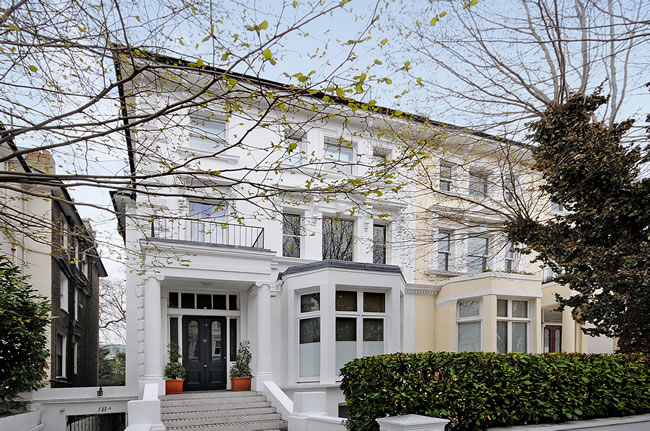
-
Consumer confidence levels have increased
-
Nimbyism has never been at such elevated levels prompted by an aging population that don't want change and high house prices encouraging people to object whether this is fear of change, envy, lack of trust, environmental or lack of respect for others needs is irrelevant this mentality it not going away and will hinder building
-
Building land prices are at extreme levels making new build projects sub-economic
-
Fuel, materials and labour costs have sky-rocketted meaning new build costs are higher further supporting used property prices
-
Jobs growth in SE England and wage growth for mid-upper level jobs has been strong supporting the mid to upper end of the property market
-
The UK citizens and migrant's views on property are similar everyone want to own their own property the desire to invest in bricks and mortar is not likely to diminish in future generations
-
Foreign money is coming into the UK which is considered a low tax safe haven for the super-rich and wealth funds
-
The Arab Spring, Euro crisis, US policies, Russian and Chinese safe haven hedging have all bought in money from the super-rich elites of these nations that want a pad in London as a hedge against crisis - further driving up London prices. Because Sterling value has dropped 25% against Far Eastern currencies in the last five years, this improves global affordability for super-rich elites.
Reasons Why Property Prices Might Not Rise
-
The main media-articles are 95% written by people living in the London area - living in the "London bubble" - outside London in 85% of areas, property prices have dropped by a
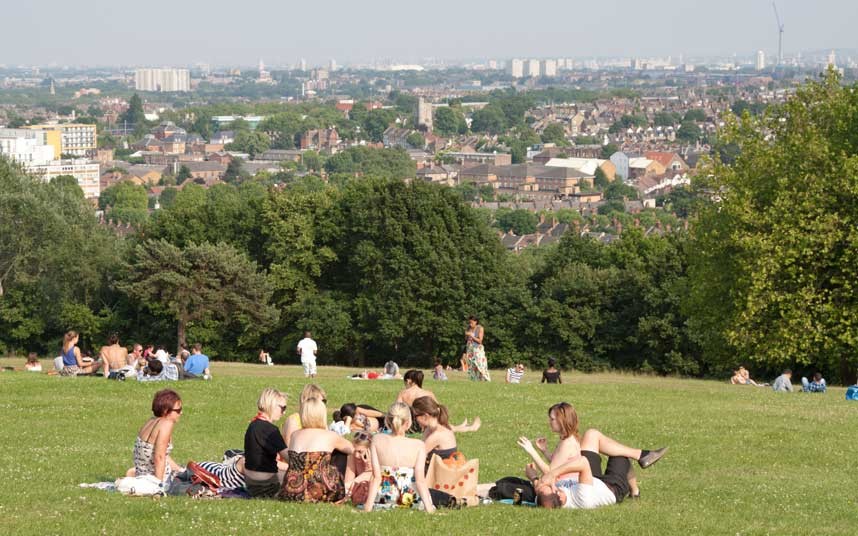 bout 35% in real terms since 2007 and have hardly risen in 2013 (barely kept pace with inflation)
bout 35% in real terms since 2007 and have hardly risen in 2013 (barely kept pace with inflation) -
The threat of a Labour government and punitive taxes will probably keep a lid on prices at the end of 2014 onwards
-
Unemployment levels are still fairly high at 7.6%
-
Disposal income is far less than in 2005 because of rising fuel, food and taxes
-
Mortgages are still fairly hard to come by
-
Property prices are perceived to still be high - making people reluctant to risk purchasing
-
House Price/Wage Earning multiples are high in southern England - increasing the risk to a new purchaser
-
The last major recession was 2008 - five years ago - we are due for another one - this risk is probably on people's minds
-
Interest rates are likely to rise in 2014 - borrowing costs could double in a few years
Re-Balancing: The Tory Coalition has started to rebalance the economy from the spending public sector to the tax  paying private sector with, up until now, fairly modest austerity measures. 13 years of Labour overspending from 1997-2010 caused a debt crisis that has not really gone away - its just been stabilized. The UK will take many more years to recover from that public spending binge - it may never fully recover regrettably. The rebalancing measures certainly calmed financial markets after the 2010 Election and Sterling has recently had a boost as the Eurozone growth has slowed down. So there seems no imminent UK bond market bubble going pop just at this time and borrowing cost remain low. The waves of migrants willing to work for far less than the average UK citizen has put a cap on wage growth in the private sector, whilst public sector wage freezes are also keeping wage growth lower, albeit public sector wages are still rising faster than private sector wages - in fact, in the last 3 years - they have outpacing private sector wages growth by 1% per annum despite a so-called wage freeze. At least all this is putting a lit on normal inflationary pressures which is allowing the Bank of England to keep interest rates low for far longer than it normally would in a recovery period. But the fly in the ointment or Achilles heal is that interest rates will eventually have to rise, and if this causes indebted individuals to get into financial trouble, property prices will drop sharply again. The cost of living continues to rise above wages growth 90% of the lower paid people - some tax breaks mean disposable income is set to rise in 2013, but for most people, the Bank of England's money printing binge has made them far worse off. It is only investors with real assets, debt and stocks and shares that have really benefited from the money printing, since its boosted general asset prices. This has of cause fed into inflation - with food, rental and fuel prices rising sharply that has hit the poorer 65% of the population.
paying private sector with, up until now, fairly modest austerity measures. 13 years of Labour overspending from 1997-2010 caused a debt crisis that has not really gone away - its just been stabilized. The UK will take many more years to recover from that public spending binge - it may never fully recover regrettably. The rebalancing measures certainly calmed financial markets after the 2010 Election and Sterling has recently had a boost as the Eurozone growth has slowed down. So there seems no imminent UK bond market bubble going pop just at this time and borrowing cost remain low. The waves of migrants willing to work for far less than the average UK citizen has put a cap on wage growth in the private sector, whilst public sector wage freezes are also keeping wage growth lower, albeit public sector wages are still rising faster than private sector wages - in fact, in the last 3 years - they have outpacing private sector wages growth by 1% per annum despite a so-called wage freeze. At least all this is putting a lit on normal inflationary pressures which is allowing the Bank of England to keep interest rates low for far longer than it normally would in a recovery period. But the fly in the ointment or Achilles heal is that interest rates will eventually have to rise, and if this causes indebted individuals to get into financial trouble, property prices will drop sharply again. The cost of living continues to rise above wages growth 90% of the lower paid people - some tax breaks mean disposable income is set to rise in 2013, but for most people, the Bank of England's money printing binge has made them far worse off. It is only investors with real assets, debt and stocks and shares that have really benefited from the money printing, since its boosted general asset prices. This has of cause fed into inflation - with food, rental and fuel prices rising sharply that has hit the poorer 65% of the population.
To Manufacture a Housing Recovery: So far the Tory Coalition has manufactured a fairly healthy property recovery that should see property prices rising through end 2013 well into 2014 just in time for the Election around May 2015. The Help to Buy scheme seems a central plank in this strategy. It will create construction jobs, employment (estate agents, surveyors, banks), GDP growth and stimulate house price increases that will then encourage home owners to spend more money on DIY, improvements, consumer goods and general services and holidays just like between 2003 and 2007. The problem is of course, after May 2015, if Labour gets into power the UK is likely to head in the direction that France is at the moment, namely: 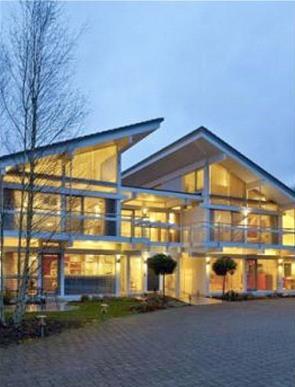
-
Boosted public spending
-
Taxation of rich and middle class people and private sector companies
-
Installing regulations that deter private sector investment
-
Rising unemployment in London and most of the UK
-
Lowering of GDP growth, credit downgrade, weak currency, higher general inflation
-
Property prices dropping sharply caused by high interest rates and low property demand as recession starts
Pent Up Demand - No Supply: For the time being though, what we are seeing is a combination of five years of pent up demand from younger people that have been frightened to get onto the property ladder up until now because of the fear that prices would drop. Now they are starting to rise, there is a mild panic - a mild mania breaking out - people are jumping onto the bandwagon - good old fashion herd mentality - because they see prices starting to rise and don't want to be left behind. This is human nature. Furthermore, many of the wealthier migrants from Europe and elsewhere have decided to put their money into the UK and purchase here because prospects back home are weaker. All of a sudden, everyone seems to have concluded that property prices will rise - and it is becoming a sell fulfilling prophesy.
For all those property investors that hung onto their portfolios - its a relief that prices are finall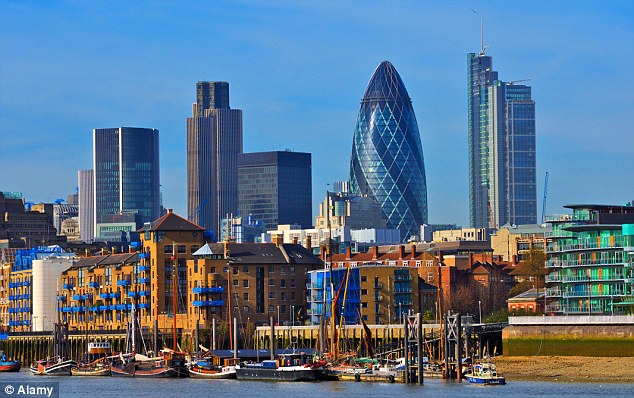 y starting to move up - sharply in London. Some will consider cashing in. Most will just hold and enjoy the rise.
y starting to move up - sharply in London. Some will consider cashing in. Most will just hold and enjoy the rise.
Looking back at previous property prices rises in the UK, they always start strongly in West London then start to fan out. This ripple effect takes in the middle then lower prices suburbs normally over a 3-5 year time period. The ripple also fans out to upper prices properties in areas close to London then further out to middle level properties further from London. Its quite predictable.
The ripple has passed through Fulham & Hammersmith, is passing through Southwark and will eventually find its way to places like Bromley, Herne Hill, Tottenham and Enfield. In London, the very last places to see any ripple will be Dagenham, Abbey Wood-Thamesmead, Woolwich and Tilbury - probably the four most depressed towns close to London.
In England as a whole, the last place to see this ripple will be places like Bury, Barrow-On-Furness, Bradford, Redcar, east Hull and Birkenhead/New Brighton. These areas have been distressed for over 50 years now.
For property investors, it's best to locate in areas with high employment of young high earning private sector workers - suggested areas: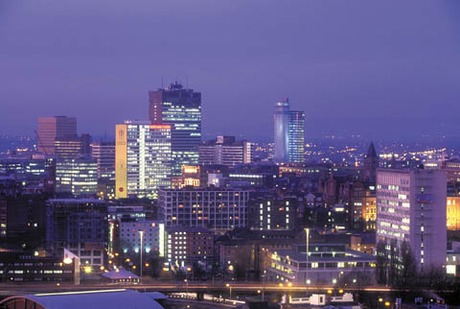
-
London
-
Guildford
-
Brighton
-
Bristol
-
Newbury
-
Cambridge
-
Oxford
-
St Neots-St Ives (Camb)
-
Exeter
-
Manchester (northern commercial-financial centre, BBC at Salford)
-
Leeds (northern commercial-financial centre)
Any areas with good new infra-structure developments that not create noise or pollution will be winners. Area that are close to West London in time-distance-travel-cost terms will see prices rising more sharply than others - albeit the ripples will head out from West London - so some areas will be playing catch-up like Battersea, Hackney and Belsize Park. Hence for London, notable areas are along the new Crossrail line:
-
Tottenham Court Road
-
Paddington
-
Farringdon (also ties into the Thameslink north-south rail)
-
Action
-
Ealing
-
Bond Street
-
Forest Gate-Maryland
-
Shenfield (should also get a boost at the end of the line)
For trendy new jobs in the high growth in the High Tech (science) arena, then Tech City (Old Street tube - Shoreditch) is a winner, as is Whitechapel.
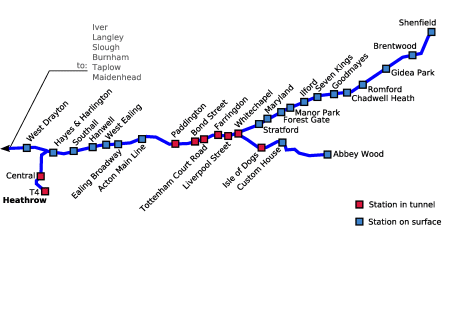
The bottom line is, the Tory Coalition has kicked off what looks like a strong property price recovery that looks set to continue for the next 15 months at least - with first time buyers quietly panicking - and jumping into the market in higher growth area before they are shut-out by higher prices or more difficult lending. The herd has bolting for now!
We hope you have found this special report helpful for insights for your property investment strategy. if you have any comments or queries, please contact us on enquiries@propertyinvesting.net

